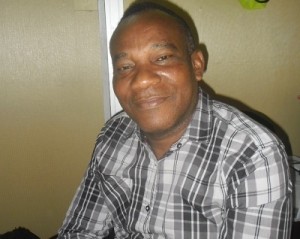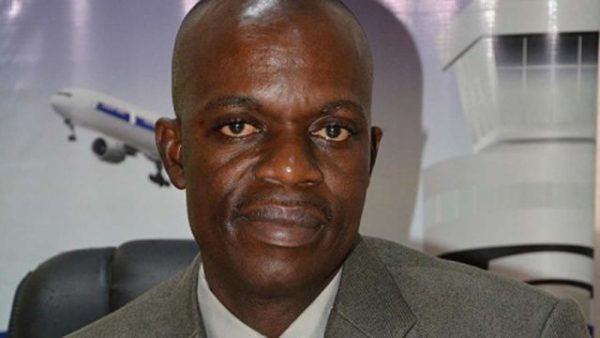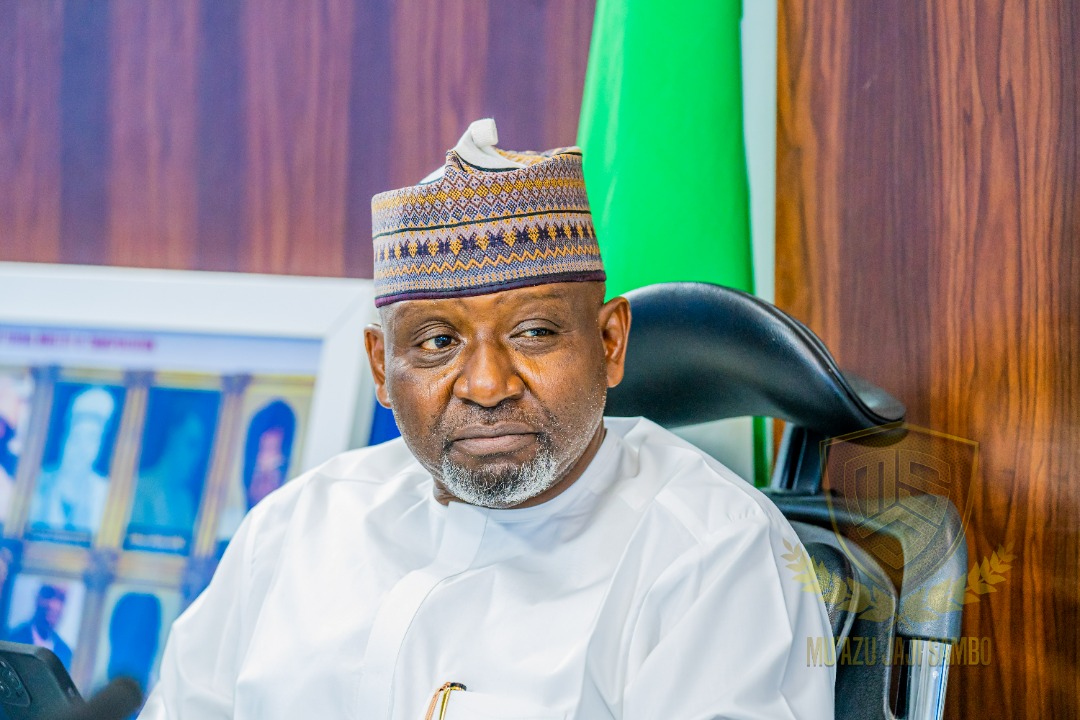Harnessing Marine Surveying To Create Jobs For Nigerians

Mr. Monday Ogadina is the President of Guild of Marine Surveyors (GMS) in Nigeria. Marine surveying in Nigeria remains a foreign dominated profession and there are so many challenges facing local marine surveyors today. Consequently, MMS Plus reached Monday Ogadina and he revealed ways through which marine surveying could be harnessed to create jobs in Nigeria, the functions of GMS, the challenges facing the marine surveying practice and other pertinent issues. Kenneth Jukpor writes….
Excerpts…
Is there a synergy between the Institute of Marine Surveying (IMS) and the Guild of Marine Surveyors to ensure the practice of surveying in Nigeria and its practitioners meet international best standards?
There is a growing synergy between the Institute of Marine Surveying (IMS) and the Guild of Marine Surveyors (GMS) to get a global picture of marine surveying and ensure surveyors are properly trained and treated well. The Guild of Marine Surveyors has become affiliated to the Institute of Marine Surveying (IMS) in London.
In Nigeria, we have over thirty (30) marine survey practitioners who are graduates of the Institute of Marine Surveying. We also have two professional bodies in Nigeria for surveying. Last month the CEO of the Institute of Marine Surveying (IMS) Mr. Mark Schwarz was in Nigeria and we had a wonderful meeting and deliberations. The idea is that we need to have one body for the interest and growth of the surveying profession in Nigeria. We have begun to work in that direction and hopefully, by next year there will be more awareness on this.
The Guild of Marine Surveyors acts as an umbrella body for registered Marine Surveyors, Marine Consultants and Cargo Superintendents. What are the core functions of the Guild of Marine Surveyors?
The Guild of Marine Surveyors is the umbrella body of registered Marine Surveyors, Cargo Superintendents and Marine Consultants/ Experts in Nigeria. The body was established on November 25th 2004 and was registered with the Corporate Affairs Commission on March 21ST 2006.
Our main functions as marine surveyors include; cargo inspection and survey this includes draft survey, weighing, tallying/ loading, discharge, delivery and quality inspection; hull and machinery inspection/ survey; oil and gas inspection/ survey, damage/loss survey as well as loss investigations on the damage, marine claims and management, comprehensive export supervision schemes, etc.
We also carryout other forms of survey like classification surveys, gaseous cargo consignment survey for oil and gas. We engage in testing, quality analysis, consultancy, training, safety, compliance, warranty, etc.
As an umbrella body do you do regular trainings for your members to ensure they are up-to-date with modern skill-set and enhance their performances on the job?
The techniques of marine cargo survey and inspections have progressively changed in line with technological changes and the complexity of shipping and shipment activities. Therefore, we usually have trainings for our members to ensure they know how to handle certain jobs and ensure they maintain the professional global best standards.
We are open and we do regular trainings. We did one in collaboration with the Nigeria Insurance Association (NIA) earlier this year. If there are cases where I can get a job that I lack the requisite knowledge to execute, I can call some other superior surveyor and we do the job together while I learn.
The Nigerian Shippers Council (NSC) and the Nigeria Insurance Agency (NIA) have also partnered with us on trainings because our work cuts across marine insurance, shipping, cargo inspection, etc.
What is the membership strength of the Guild of Marine Surveyors (GMS) and how does one become a member?
The Guild of Marine Surveyors has membership strength of over forty (40) corporate members with various specializations in Marine Insurance, Claims Adjusters, General Average Adjusters, Superintendents, Naval Architects, Maritime Risk Experts, Marine Engineers, Nautical or Deck officers, etc.
Our membership is open to all eligible persons or organizations who are practitioners of marine survey, cargo super indents and marine consultants. The person seeking membership must be able to show evidence of recognized accomplishment and continuing professional standing in such charter to be consistent with the objectives set in our constitution.
Recently, you lamented that local marine surveyors were suppressed as the marine survey practice in Nigeria is dominated by foreigners. How have indigenous surveyors been stifled and what can be done to remedy the situation?
The truth which we do know is that foreigners in Nigeria are already carrying out a large chunk of the activities of marine surveyors instead of Nigerians because there are no laws to stop these foreigners. Even if there were laws, Nigerians would also have to be fully trained to be able to effectively do marine surveying jobs. That’s why there is a dire need for training of indigenous marine surveyors because the government keeps striving to create jobs while the available ones are continuously exploited by foreigners because we lack the requisite technical expertise to do the jobs.
We can’t stop the employment of foreigners as marine surveyors unless we have built proficient people to fill in the gap in the industry. For example, if we are to lay a gas pipeline from Lagos to Benin, we need a surveyor to inspect and do the test running to ensure that there wouldn’t be leakages.
Consequently, we need to be fully involved in training these marine surveyors and we need the support of the federal government to fully achieve this so that more Nigerians will be employed, the industry will grow and our money will remain here in Nigeria.
Do you think new policies should be made to help build the marine surveying practice in Nigeria and are there policies that are actually hindering indigenous marine surveyors?
The problem is that marine surveying is like a new profession in Nigeria and the government at this stage needs to come in to secure the profession. This is paramount because the profession is about cargo safety and ship safety and the country is always better when these two things are guaranteed. At this juncture, I should commend the Nigerian Shippers Council (NSC) for what they have been doing to ensure safety and protect the cargo, shippers and Nigerians. Our objectives are also similar and that is why we partner with them so we can create a safer shipping environment.
We want the country to have best practices with regards to marine surveying, to create and sustain a situation where cargo is handled in a professional way to reduce damages and properly handle its aftermath. Not everyone knows that containers have standard methods of storage, so if you ship a container without obeying the standards, the cargo is likely to arrive at the destination damaged. With the help of marine/ cargo surveyors, they tell you how a cargo should be loaded to reach its destination without any problem. This ensures cargo safety which is one of our functions and cargo safety makes the importer, shipper, the nation and all stakeholders happy after the transaction.
The government should ensure our jobs are not hindered by bureaucracy of new private port terminal owners. For example, if a ship has berthed and the owner wants to know how the container arrived, the person who has the responsibility to prove this information is the marine/ cargo surveyor. However, surveyors are not allowed into the port terminal sometimes without the port card even if he/ she has an NPA card. This is how our job is systematically hindered.
We have surveyors working for private terminals but the question is whether these surveyors are properly trained. It is also very important for a surveyor to be independent. If a surveyor works for a terminal, there is no way the reports of that surveyor wouldn’t protect the interest of his employer. However, if we have two surveyors, that is one other surveyor from another party other than the terminal operator, there will be joint survey/ inspection. This will ensure that they reach a fair and balance conclusion that will protect the interests of both parties. Therefore, the government should support surveyors to ensure that cargoes that arrive and leave the ports are properly checked and charged and any loss that occurred is documented and the reasons for the loss identified.
As the president of the Guild of Marine Surveyors (GMS), what are your short and long term visions for the association?
The future is very bright. We have many maritime schools in Nigeria and the surveying profession is growing. With the support of the federal government we are going to develop rapidly to the level that is obtainable in other leading maritime nations of the world. There is no reason we shouldn’t have over 100,000 indigenous marine surveyors employed across the nation. If we have surveyors working for the government in all the ports in Nigeria, we would have created jobs for over 100,000 Nigerians.
I want to call on the federal government to aid the growth of marine surveying in Nigeria because this is bound to enable us create more jobs even as we enrich and improve the surveying practice in Nigeria.








